British politics and policy
Our academics can provide expert insight and analysis on elections and polling, parliament and the constitution, political history, public policy, foreign policy and the representation of women and ethnic minorities.
We are also home to the Mile End Institute, Queen Mary's primary centre for the study and public discussion of the major challenges facing British politics, policymaking, and public life.
Prof Tim Bale
 Tim is Professor of Politics at Queen Mary and one of the most respected commentators on British politics. He is an expert in political parties and their membership, grassroots campaigning and the politics of immigration.
Tim is Professor of Politics at Queen Mary and one of the most respected commentators on British politics. He is an expert in political parties and their membership, grassroots campaigning and the politics of immigration.
He is the author of The Conservative Party After Brexit: Turmoil and Transformation and co-author of The British General Election of 2024.
- Full profile
- Email: t.bale@qmul.ac.uk
Dr Sofia Collignon
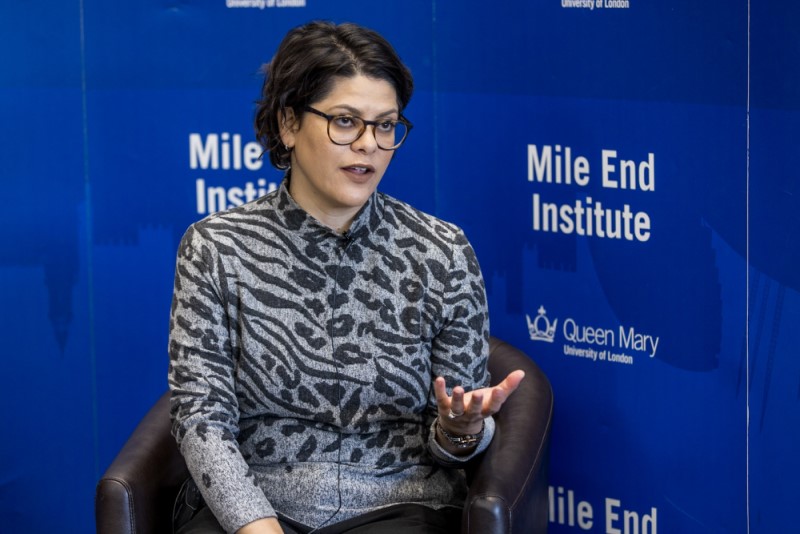 Sofia is the Director of the Mile End Institute and an expert in the study of candidates, elections, parties, and gendered violence against political elites. Her research concentrates on the experience of candidates standing for election and the interaction between elite politics and public opinion.
Sofia is the Director of the Mile End Institute and an expert in the study of candidates, elections, parties, and gendered violence against political elites. Her research concentrates on the experience of candidates standing for election and the interaction between elite politics and public opinion.
Sofia advises national and international governments and non-governmental organisations on key policy and delivery issues, especially related to abuse, harassment and intimidation in public life. Her work has been covered by international media outlets including The Atlantic, The Washington Monthly, The Guardian, Sky News, the BBC, and CNN.
Prof Philip Cowley
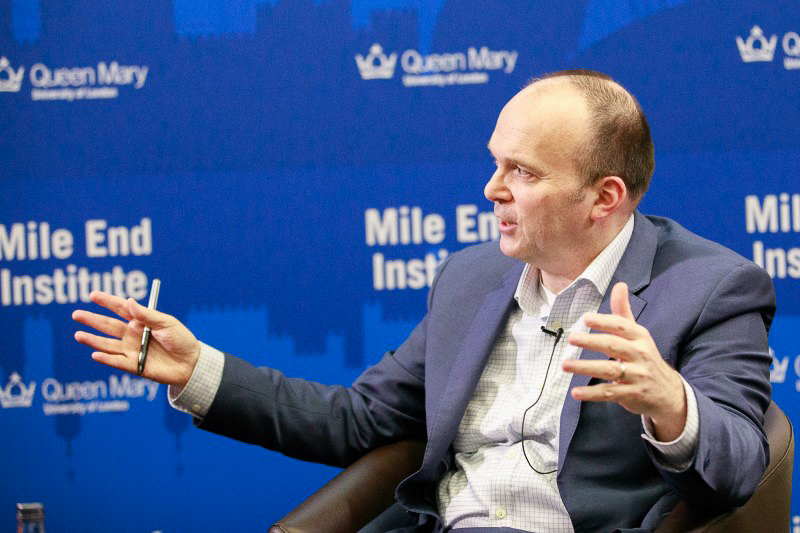 Phil is Professor of Politics at Queen Mary and has been a fixture of British elections for well over a decade as BBC Radio 4's election night expert and the author of The British General Election of 2017 and its 2010 and 2015 equivalents.
Phil is Professor of Politics at Queen Mary and has been a fixture of British elections for well over a decade as BBC Radio 4's election night expert and the author of The British General Election of 2017 and its 2010 and 2015 equivalents.
His media work has included articles for the most major British newspapers and magazines, and he has appeared on various BBC radio and television programmes. He writes a regular column for the House magazine.
- Full profile
- Email: p.cowley@qmul.ac.uk
Dr Matthew Barnfield
 Matthew's research is in the field of political psychology and political behaviour and addresses the role of the future in democratic politics: how we think about the political future, what we want it to be like, and how that shapes the choices we make together.
Matthew's research is in the field of political psychology and political behaviour and addresses the role of the future in democratic politics: how we think about the political future, what we want it to be like, and how that shapes the choices we make together.
His expertise includes political behaviour, how polling shapes public opinion, and the role of the future in democratic politics.
Prof Patrick Diamond
Patrick Diamond is a Professor in Public Policy and author of The British Labour Party in Opposition and Power. Patrick held a number of senior posts in British central government between 2000 and 2010 and was formerly Head of Policy Planning in 10 Downing Street.
Patrick's expertise includes the history and politics of the Labour Party; policymaking and the machinery of government; public services and public service reform.
- Full profile
- Email: p.diamond@qmul.ac.uk
Tom Chidwick
Tom is Manager of the Mile End Institute where he oversees all aspects of the Institute's work. Tom's expertise covers British and Scottish political history, the Scottish National Party and John Swinney, and the history of 'One Nation' conservatism.
His first book, Now or Never! A History of the First Scottish Devolution Referendum, will be published by Bloomsbury Academic in 2026. It will be the first history of the 1 March 1979 referendum on the creation of a Scottish Assembly since 1981 and charts how devolution and Scotland’s first referendum dominated Scottish politics and public life in the 1970s.
Dr Daniel Gover
 Daniel is a Senior Lecturer in British Politics and co-author of Legislation at Westminster. Daniel’s research has been cited in the media, parliament and other policy forums, and he has appeared before several parliamentary select committees to give evidence based on his findings.
Daniel is a Senior Lecturer in British Politics and co-author of Legislation at Westminster. Daniel’s research has been cited in the media, parliament and other policy forums, and he has appeared before several parliamentary select committees to give evidence based on his findings.
His expertise includes the workings of the UK Parliament, constitutional reform including the House of Lords, private members' bills, and devolution.
- Full profile
- Email: d.p.gover@qmul.ac.uk
Farah Hussain
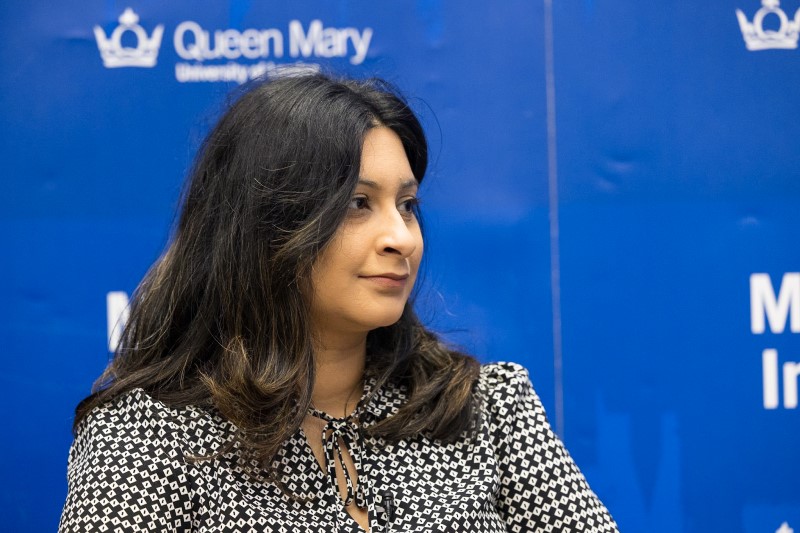 Farah is a PhD student in the Department of Politics and International Relations and an Honorary Research Fellow at the Mile End Institute.
Farah is a PhD student in the Department of Politics and International Relations and an Honorary Research Fellow at the Mile End Institute.
Her research explores the relationship between the Labour Party and the Muslim electorate in the UK, the experience of Muslim women in the Labour Party and the nature of party membership. Farah previously worked in Parliament, regional government and served as a local councillor in the London Borough of Redbridge.
Dr Richard Johnson
 Richard Johnson is a Senior Lecturer and co-author/editor of Keeping the Red Flag Flying: The Labour Party in Opposition since 1922 and Sceptical Perspectives on the Changing Constitution of the United Kingdom.
Richard Johnson is a Senior Lecturer and co-author/editor of Keeping the Red Flag Flying: The Labour Party in Opposition since 1922 and Sceptical Perspectives on the Changing Constitution of the United Kingdom.
Richard's expertise includes the history and politics of the Labour Party, the British constitution, Britain and the European Union, Labour Euroscepticism, UK-US politics and race and democracy in the United States.
Dr Colm Murphy
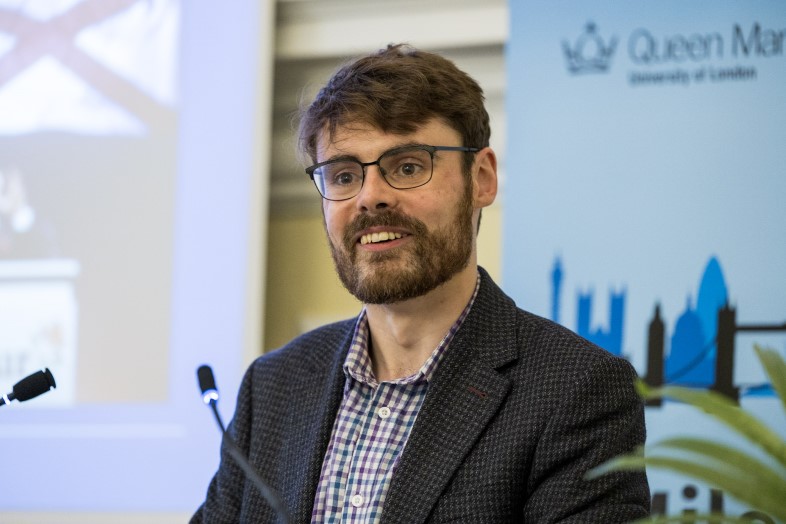 Colm is a Lecturer in British Politics and Deputy Director of the Mile End Institute. He is the author of Futures of Socialism which explores socialist and social-democratic debates about the future of the Labour Party from the 1970s to the 1990s.
Colm is a Lecturer in British Politics and Deputy Director of the Mile End Institute. He is the author of Futures of Socialism which explores socialist and social-democratic debates about the future of the Labour Party from the 1970s to the 1990s.
He is an expert in the history and internal politics of the Labour Party, the political economy and economic policymaking of the UK, and Starmerism in historical perspective.
Dr Karl Pike
 Karl is a Lecturer in Public Policy and Deputy Director of the Mile End Institute. He is a former advisor to the Shadow Home Secretary, Yvette Cooper MP and is the author of Getting Over New Labour which explores why the Labour Party has been seemingly unable to move on from the 1997-2010 period, despite the tumultuous and eventful period of politics we have experienced since Labour left office.
Karl is a Lecturer in Public Policy and Deputy Director of the Mile End Institute. He is a former advisor to the Shadow Home Secretary, Yvette Cooper MP and is the author of Getting Over New Labour which explores why the Labour Party has been seemingly unable to move on from the 1997-2010 period, despite the tumultuous and eventful period of politics we have experienced since Labour left office.
Karl can provide expert comment on UK public policy and the Labour Party.
- Full profile
- Email: k.pike@qmul.ac.uk
Prof Javier Sajuria
 Javier is Professor of Comparative Politics. His research interests include political behaviour, comparative politics, social media and politics, and political methodology.
Javier is Professor of Comparative Politics. His research interests include political behaviour, comparative politics, social media and politics, and political methodology.
Javier's expertise includes party members and campaigning; parliamentary candidates (selection, campaigning, localism, independent candidates); polling and public opinion; populism and the impact of misinformation.
- Full profile
- Email: j.sajuria@qmul.ac.uk
Dr James Strong
 James Strong is a Reader in British Politics and Foreign Policy. He is author of Public Opinion, Legitimacy and Tony Blair’s War in Iraq, which discussed the relationship between public opinion, parliament, the press and the Blair government during the lead-up to the 2003 invasion of Iraq.
James Strong is a Reader in British Politics and Foreign Policy. He is author of Public Opinion, Legitimacy and Tony Blair’s War in Iraq, which discussed the relationship between public opinion, parliament, the press and the Blair government during the lead-up to the 2003 invasion of Iraq.
James studies the domestic politics of British foreign policy and is an expert on the powers of the UK Parliament, foreign, defence and security policy, and the British constitution. His work has examined the role of the House of Commons in military deployment decisions and parliamentary war powers in the UK.
- Full profile
- Email: j.strong@qmul.ac.uk
Prof Rainbow Murray
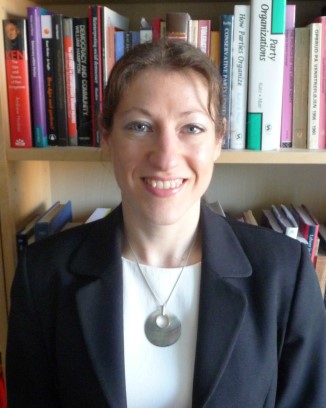 Rainbow is Professor of Politics and an expert on representation, political institutions, gender and diversity, with particular expertise in French and British politics. Her primary research interests lie in political representation, gender and politics, candidate selection, French and comparative politics, political parties, parliaments and elections.
Rainbow is Professor of Politics and an expert on representation, political institutions, gender and diversity, with particular expertise in French and British politics. Her primary research interests lie in political representation, gender and politics, candidate selection, French and comparative politics, political parties, parliaments and elections.
She is currently Principal Investigator on the €2m Horizon Europe-funded MENSREP project, a comparative study across the UK, US, France, and Norway which will investigate the representation of men in political bodies.
Dr Tony McNulty
Tony is a Teaching Fellow and Lecturer British Politics and Public Policy. Previously he held various academic roles before becoming a Member of Parliament for Harrow East from 1997 to 2010. During his political career, Tony was a government minister in various departments including the Office of the Deputy Prime Minister, Transport and the Home Office.
Tony's research interests include the centrality of the House of Commons in the UK political constitution, party politics and elections, and the politics of the Labour Party. His research interests also include the use of rhetoric in politics and French politics.